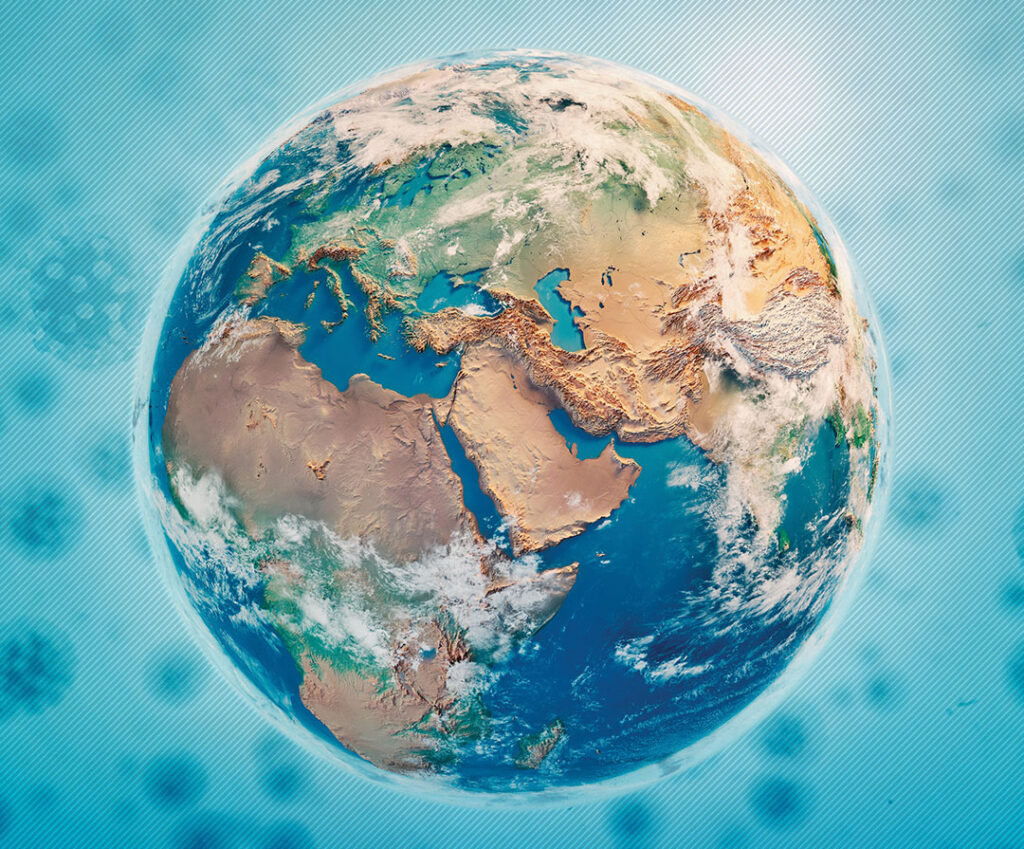MAJ. GEN. (RET.) AWDA ARSHEED SHEDAFAT, JORDAN ARMED FORCES
International relations between states are influenced by everything that happens in the world. Wars and their ramifications, repercussions and consequences have probably been the most influential factors in international relations. Numerous world events have contributed to the formation of international alliances, federations, cooperation councils and other international bodies serving the interests of states.
We are now living through one of the world’s worst crises, which has been called the equivalent of a global war. The COVID-19 pandemic has crossed boundaries on every continent. It is a hidden enemy, the likes of which history has rarely seen in terms of its rapid spread and impact and in terms of the death and destruction worldwide in all aspects of life. It has affected countries’ infrastructure and institutions, causing the world to stand on edge.
The language of discourse between countries has changed. Their priorities and interests have shifted, and suspicions about each other’s behavior have increased. New concepts have emerged that could restructure international relations. States may alter their outlooks, focusing more on self-reliance, individualism and prioritization of national interests. These were less important in many countries when economics, militarization, technology and other priorities took precedence over human life and health as the driving force behind international events.
Such events, including the battle with the coronavirus, require a voice of reason, a good conscience, respect for humanity and a reevaluation of priorities. They require the building of an international ethical and behavioral system that lives up to the lofty meanings and values of responsibility, hard work and patience.
They also require that we learn lessons from what has occurred and is taking place around us. We need the voice of reason and courage to represent matters in realistic terms; we need wisdom and foresight, because the peoples of the world cannot live without cooperation, trust and the exchange of knowledge and ideas. Nor can they live without the rejection of all forms of division, selfishness and discrimination among humankind on the basis of race, color or creed, since Kullukum min Adam wa Adam min turab (You are all children of Adam, and Adam is from clay).
People must also strive toward goodness, cooperation, tolerance, responsibility and commitment rather than follow the whims of their desires. We can turn this pandemic into an opportunity to rearrange priorities in international and intrastate relations to serve the interests of the peoples of the world and human health, instead of serving the rivalries that dominated the world’s agendas before the sudden emergence of this global war.
The Jordanian model, led by His Majesty King Abdullah II ibn Al Hussein, was a sprint to open channels of communication. It was one of consultation, interdependence, and exchange of knowledge and ideas to develop trust, build bridges of cooperation, and instill hope among the citizens of Jordan and all peoples of the world. It is a model of goodwill and, like the Blessed Tree of paradise, is firmly rooted and reaches to the sky.

